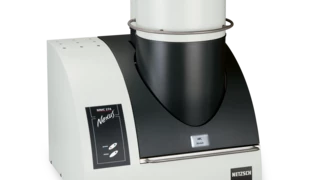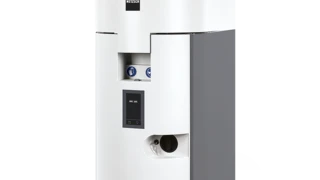Glossary
Delta T(ad)
The AdiabaticAdiabatic describes a system or measurement mode without any heat exchange with the surroundings. This mode can be realized using a calorimeter device according to the method of accelerating rate calorimetry (ARC). The main purpose of such a device is to study scenarios and thermal runaway reactions. A short description of the adiabatic mode is “no heat in – no heat out”.adiabatic temperature rise (delta Tad) is the Burgers ModelThe Burgers Model is a general model of a viscoelastic material, commonly used to describe a classic creep recovery measurement.observed temperature rise (delta Tobs) of a self-heating Decomposition reactionA decomposition reaction is a thermally induced reaction of a chemical compound forming solid and/or gaseous products. decomposition reaction under AdiabaticAdiabatic describes a system or measurement mode without any heat exchange with the surroundings. This mode can be realized using a calorimeter device according to the method of accelerating rate calorimetry (ARC). The main purpose of such a device is to study scenarios and thermal runaway reactions. A short description of the adiabatic mode is “no heat in – no heat out”.adiabatic conditions in consideration of the PHI-factorThe PHI-factor (Φ) is equivalent to the thermal inertia. Both describe the ratio of mass and specific heat capacity of a sample or sample mixture compared to that of the vessel or sample container. PHI-factor.


